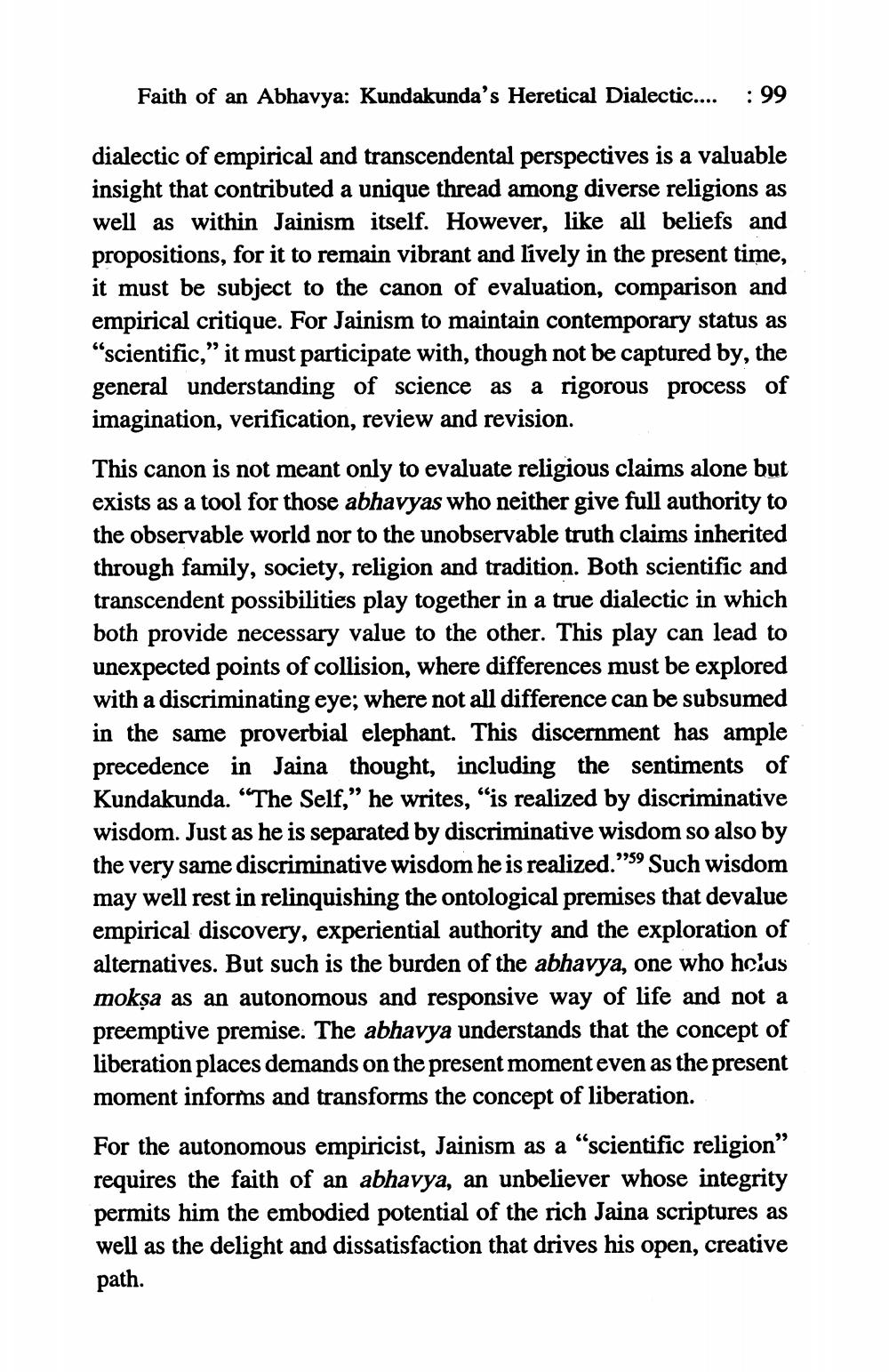________________
Faith of an Abhavya: Kundakunda's Heretical Dialectic.... : 99
dialectic of empirical and transcendental perspectives is a valuable insight that contributed a unique thread among diverse religions as well as within Jainism itself. However, like all beliefs and propositions, for it to remain vibrant and lively in the present time, it must be subject to the canon of evaluation, comparison and empirical critique. For Jainism to maintain contemporary status as "scientific,” it must participate with, though not be captured by, the general understanding of science as a rigorous process of imagination, verification, review and revision
This canon is not meant only to evaluate religious claims alone but exists as a tool for those abhavyas who neither give full authority to the observable world nor to the unobservable truth claims inherited through family, society, religion and tradition. Both scientific and transcendent possibilities play together in a true dialectic in which both provide necessary value to the other. This play can lead to unexpected points of collision, where differences must be explored with a discriminating eye; where not all difference can be subsumed in the same proverbial elephant. This discernment has ample precedence in Jaina thought, including the sentiments of Kundakunda. "The Self,” he writes, “is realized by discriminative wisdom. Just as he is separated by discriminative wisdom so also by the very same discriminative wisdom he is realized.”S9 Such wisdom may well rest in relinquishing the ontological premises that devalue empirical discovery, experiential authority and the exploration of alternatives. But such is the burden of the abhavya, one who hclus mokșa as an autonomous and responsive way of life and not a preemptive premise. The abhavya understands that the concept of liberation places demands on the present moment even as the present moment informs and transforms the concept of liberation. For the autonomous empiricist, Jainism as a "scientific religion" requires the faith of an abhavya, an unbeliever whose integrity permits him the embodied potential of the rich Jaina scriptures as well as the delight and dissatisfaction that drives his open, creative path.




